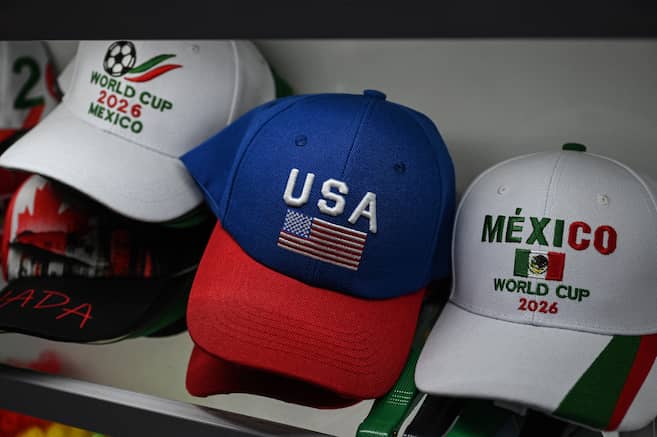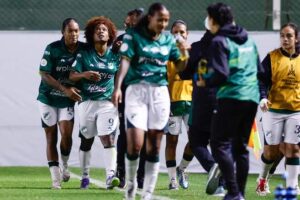

2026 World Cup caps. Reference image.
Photo: AFP – Jade Gao
Summary and Fast Informame
Listen to this article
Audio generated with Google
Nine months from the tournament organized in the United States, Mexico and Canada, cap manufacturers, bracelets, flags or hats with the emblem of national teams should be overflowed with orders.
Especially in Yiwu, in East China, one of the main worldwide production centers of small items that attracts buyers from all over the world.
But the multiple turns of the commercial war between Beijing and Washington, especially the persistent uncertainty about the amount of tariffs that US President Donald Trump will decide to impose on Chinese products, make customers doubt.
In the halls of the Yiwu Wells Knitting Products factory, the workers give the final touches to a multitude of sports accessories.
“We are in this sector for more than 10 years and we manufacture products derived from the World Cup for almost each tournament,” Shang explains to AFP.
“This year we get small orders. But the most important ones, which are on hold, are not yet realized due to US tariffs,” he adds.
One million articles
In the factory, workers use sewing machines to set fringes at the ends of scarves while others iron.
China and the United States extended their commercial truce until November, thus avoiding the reciprocal imposition of three -digit prohibitive tariffs on their products.
The company where Shang still expects its customers to validate the big orders, which together represent about one million articles.
Other indications of this contemplative attitude are in the immense “City of International Trade” of Yiwu, one of the world's largest wholesale markets in the world.
In neon enlightened halls, the positions offered by football or flags have little influx compared to the usual presence of foreign buyers.
The derived products are numerous, from sun glasses with the colors of the flags of different countries to keychains from which mini ankle boots hang.
“At this time, before the last World Cup, we had a great flow of mass orders,” Daisy Dai explains to AFP, who sells printed balls. But this year “customers doubt.”
American buyers previously represented a large part of their clientele, but “since the beginning of the commercial war, some great brands stopped orders for the lack of clarity about tariffs,” he explains.
Beside him, Zhu Yanjuan, sidewasher of flags and small products related to the World Cup, explains that his volume of orders from abroad slowed down.
“After all, they are not essential products,” he says. Even so, it remains optimistic: “Things will improve little by little.”
💰📈💱 Have you already learned the latest news economic? We invite you to see them in the viewer.

